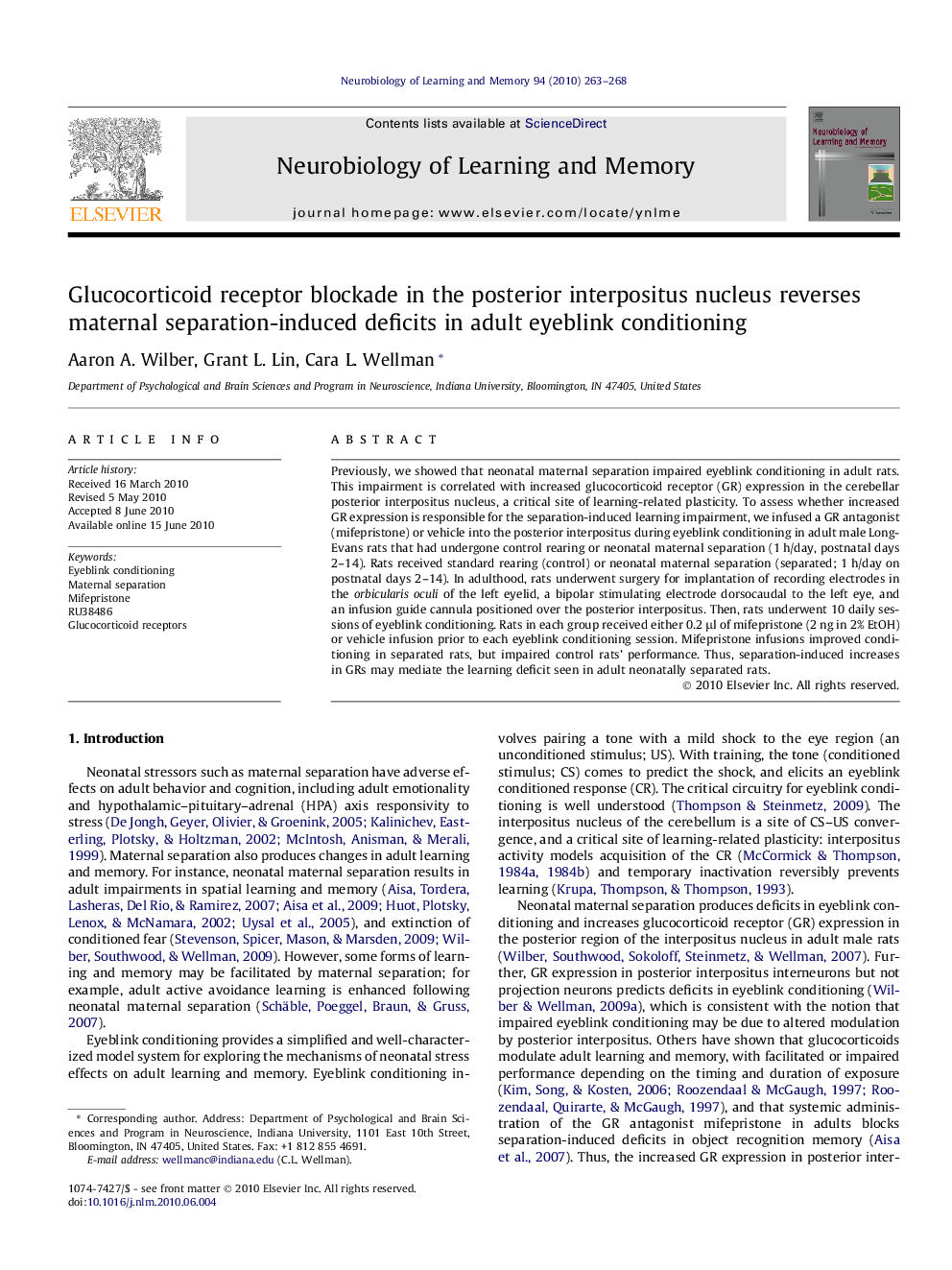| Article ID | Journal | Published Year | Pages | File Type |
|---|---|---|---|---|
| 936821 | Neurobiology of Learning and Memory | 2010 | 6 Pages |
Previously, we showed that neonatal maternal separation impaired eyeblink conditioning in adult rats. This impairment is correlated with increased glucocorticoid receptor (GR) expression in the cerebellar posterior interpositus nucleus, a critical site of learning-related plasticity. To assess whether increased GR expression is responsible for the separation-induced learning impairment, we infused a GR antagonist (mifepristone) or vehicle into the posterior interpositus during eyeblink conditioning in adult male Long-Evans rats that had undergone control rearing or neonatal maternal separation (1 h/day, postnatal days 2–14). Rats received standard rearing (control) or neonatal maternal separation (separated; 1 h/day on postnatal days 2–14). In adulthood, rats underwent surgery for implantation of recording electrodes in the orbicularis oculi of the left eyelid, a bipolar stimulating electrode dorsocaudal to the left eye, and an infusion guide cannula positioned over the posterior interpositus. Then, rats underwent 10 daily sessions of eyeblink conditioning. Rats in each group received either 0.2 μl of mifepristone (2 ng in 2% EtOH) or vehicle infusion prior to each eyeblink conditioning session. Mifepristone infusions improved conditioning in separated rats, but impaired control rats’ performance. Thus, separation-induced increases in GRs may mediate the learning deficit seen in adult neonatally separated rats.
